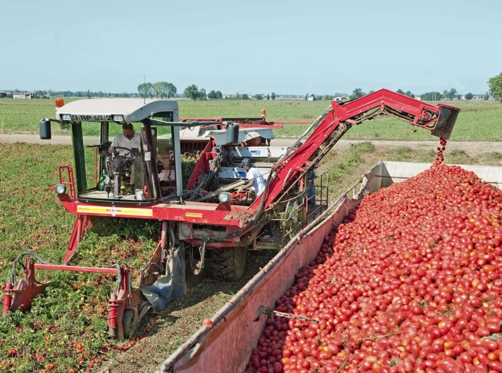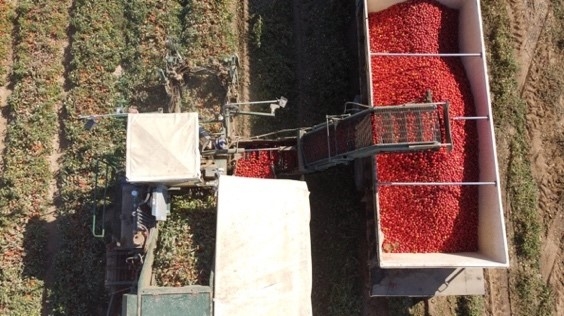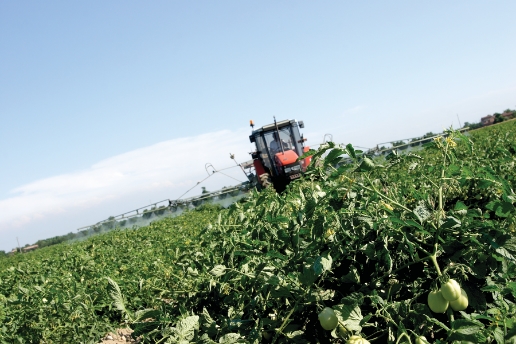Respect for your privacy is our priority
The cookie is a small information file stored in your browser each time you visit our web page.Cookies are useful because they record the history of your activity on our web page. Thus, when you return to the page, it identifies you and configures its content based on your browsing habits, your identity and your preferences.
You may accept cookies or refuse, block or delete cookies, at your convenience. To do this, you can choose from one of the options available on this window or even and if necessary, by configuring your browser.
If you refuse cookies, we can not guarantee the proper functioning of the various features of our web page.
For more information, please read the COOKIES INFORMATION section on our web page.


 Vegetables by Bayer team, with Seminis and De Ruiter seed brands, are committed to developing high-quality tomato varieties designed for all types of production environments, including open-field, protected and processing. According to Bayer, the processing segment accounts for 20% of tomatoes produced around the world.
Vegetables by Bayer team, with Seminis and De Ruiter seed brands, are committed to developing high-quality tomato varieties designed for all types of production environments, including open-field, protected and processing. According to Bayer, the processing segment accounts for 20% of tomatoes produced around the world. Responsible for about 30% of global tomato processing production and 95% of US processing tomatoes, California is the industry’s main producer and has a rich history in processing tomato production. There have been several major advancements in California’s tomato processing industry, from the first disease resistant tomato varieties introduced in the 1960s to the creation of the first-ever mechanized tomato harvester and the transition from direct seeding to seed transplantation practices in the 1990s to ensure plant vigor and production in unpredictable weather patterns.
Responsible for about 30% of global tomato processing production and 95% of US processing tomatoes, California is the industry’s main producer and has a rich history in processing tomato production. There have been several major advancements in California’s tomato processing industry, from the first disease resistant tomato varieties introduced in the 1960s to the creation of the first-ever mechanized tomato harvester and the transition from direct seeding to seed transplantation practices in the 1990s to ensure plant vigor and production in unpredictable weather patterns. With the challenge of water shortage top of mind, the Bayer team is constantly working on delivering innovation to farmers who are in desperate need. While tomatoes thrive in hot, dry summers, plant growth relies on consistently moist soil. Thus, all Californian processing tomatoes are irrigated to help protect against crop loss. Farmers recognize water as a valuable limited resource and, as a result, excel at efficient use, routinely diverting water to more sensitive or high value crops. Monitoring the crops with digital solutions helps ensure plants receive sufficient moisture and help growers to get the highest yield for every drop of water used.
With the challenge of water shortage top of mind, the Bayer team is constantly working on delivering innovation to farmers who are in desperate need. While tomatoes thrive in hot, dry summers, plant growth relies on consistently moist soil. Thus, all Californian processing tomatoes are irrigated to help protect against crop loss. Farmers recognize water as a valuable limited resource and, as a result, excel at efficient use, routinely diverting water to more sensitive or high value crops. Monitoring the crops with digital solutions helps ensure plants receive sufficient moisture and help growers to get the highest yield for every drop of water used. While challenges persist, the future of processing tomatoes in California looks bright for the global agricultural leader. Since 2006, California has been embracing climate-smart agriculture (CSA), a globally recognized policy framework that balances the essential demands of agriculture and sustainability, limit agriculture's contribution to global greenhouse gas (GHG) emissions, decrease agriculture's vulnerability to the impacts of climate change and acknowledge the essential link between agricultural productivity and food security.
While challenges persist, the future of processing tomatoes in California looks bright for the global agricultural leader. Since 2006, California has been embracing climate-smart agriculture (CSA), a globally recognized policy framework that balances the essential demands of agriculture and sustainability, limit agriculture's contribution to global greenhouse gas (GHG) emissions, decrease agriculture's vulnerability to the impacts of climate change and acknowledge the essential link between agricultural productivity and food security.


























